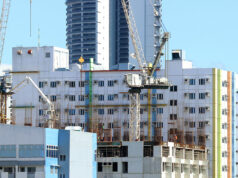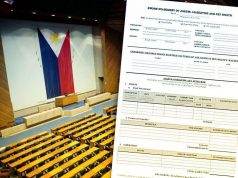NEDA ICC-CabCom approves increase in North-South Commuter Railway project cost

By Melissa Luz T. Lopez, Senior Reporter
THE NATIONAL Economic and Development Authority (NEDA) raised the project cost for the long-haul commuter line of the Philippine National Railways (PNR) by nearly double to buy more trains and build elevated tracks.
In a statement, the NEDA said that the Investment Coordination Committee-Cabinet Committee approved a P777.551-billion total project cost for the North-South Commuter Railway (NSCR), a 76.4% mark-up from P440.881 billion previously.
The railway system will combine the NSCR Phase 1 linking Malolos, Bulacan to Tutuban in Manila, the PNR South Commuter Railway from Solis to Calamba, Laguna, and the Malolos-Clark Railway Project. The project entails building a 147-kilometer stretch of an elevated, double-track railway with 36 stations.
These form part of the priority infrastructure projects under the “Build, Build, Build” program of the Duterte administration.
The approval was given during the committee meeting on Tuesday, Nov. 6.
“The increase in project cost is attributed to three factors as determined by the detailed engineering designs,” the NEDA said on Friday.
Among the major changes behind the bigger project price include the construction of elevated viaducts for the trains, veering away from ground-level structures to “improve operational efficiencies” and safety. Existing PNR rail systems are currently built right on the ground.
Other changes include the adoption of standard gauge tracks versus the previous narrow-gauge plan. The higher price tag will likewise cover the purchase of more trains as well as the use of double tracks for the Malolos-Clark line, the NEDA said.
The additional costs will also provide for the resettlement of 12,901 families who will be displaced by the construction of the new train lines.
Still, the new train line will be financed through official development assistance from the Japan International Cooperation Agency (JICA) and the Asian Development Bank.
The railway project is expected to be partly operational by 2022 and will service 340,000 passengers daily. The trains will be fully operational by 2023 and can carry up to 550,000 people daily.
The NSCR system will also be linked to the existing Light Rail Transit lines 1 and 2, the Metro Rail Transit 3, and the planned Metro Manila Subway also funded by JICA.
The government will provide a P5 billion subsidy each year to cover the capital, operating and renewal costs of the project, the NEDA said.
The higher project cost and new railway design will still have to be approved by the NEDA Board, which is chaired by President Rodrigo R. Duterte.



